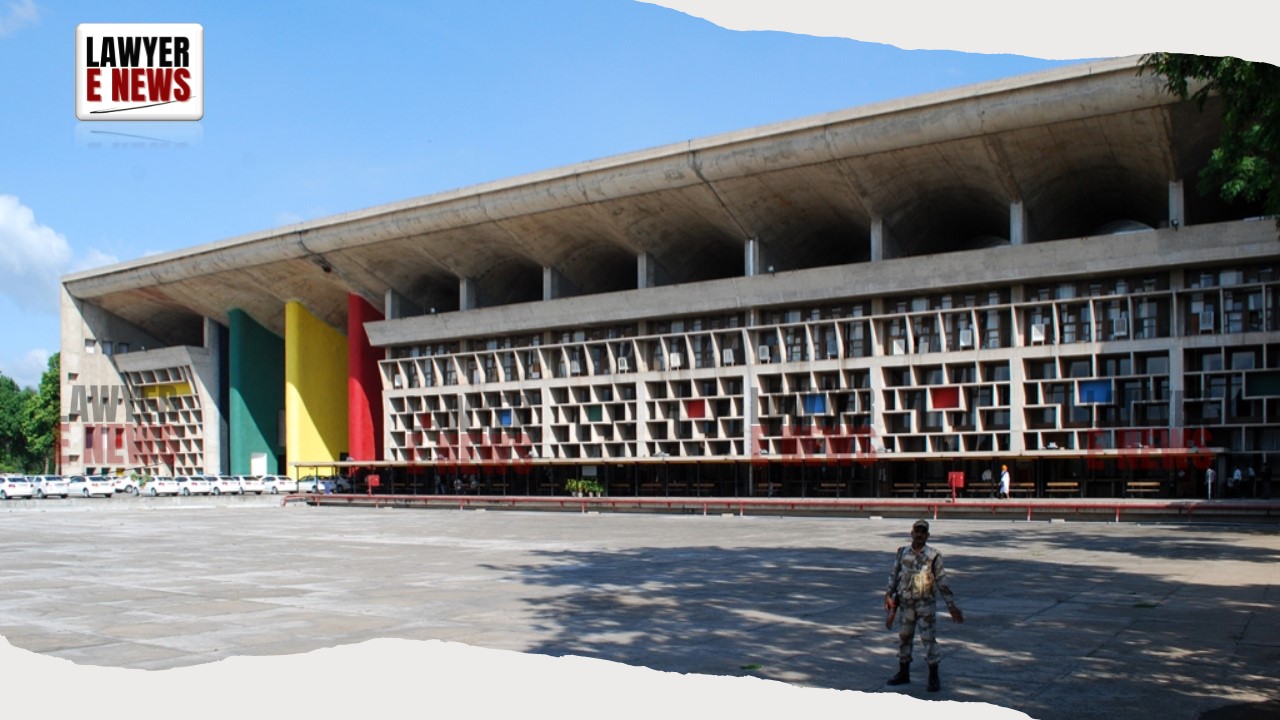-
by Admin
15 February 2026 5:35 AM



Reasonable Classification in Excise Policy Does Not Violate Article 14 - Punjab and Haryana High Court upheld the validity of Clause 9.8.8 of the Haryana Excise Policy 2024–25, which restricts the operational hours of bars and pubs outside Gurugram and Faridabad districts to 12:00 midnight. The petitioners, operating bars and pubs in Panchkula, had challenged the clause as discriminatory and violative of Article 14 of the Constitution. A division bench comprising Hon’ble Justice Sanjeev Prakash Sharma and Hon’ble Justice Sanjay Vashisth dismissed the petition, holding that the differentiation in policy was based on reasonable classification and not arbitrary.
Citing Khoday Distilleries Ltd. v. State of Karnataka (1995) 1 SCC 574, the court observed, “There is no fundamental right to trade in liquor. The trade is inherently harmful, and its regulation or prohibition falls squarely within the domain of the State.”
The Haryana Excise Policy 2024–25, effective from June 12, 2024, introduced Clause 9.8.8, limiting bar and pub operational hours across Haryana to 12:00 midnight. However, an exception was provided for Gurugram and Faridabad districts, where bar owners could extend operating hours up to 2:00 AM upon payment of an additional annual fee of ₹20 lakhs and beyond 2:00 AM by paying ₹5 lakhs per hour per annum. The petitioners, L-4/L-5 license holders in Panchkula, argued that this restriction unfairly discriminated against them, as they were not allowed to apply for such extensions despite being willing to pay the additional fees.
The petitioners contended that the policy disrupted their business operations and violated their right to equality under Article 14, as similarly situated license holders in Gurugram and Faridabad were given more favorable terms. They asserted that the policy lacked justification and was arbitrary.
The State defended the policy, asserting that liquor trade is not a fundamental right and that excise policies inherently vary based on regional considerations. The State argued that the classifications were based on factors such as population density, urbanization, and socio-economic conditions.
The primary issues before the court were whether Clause 9.8.8 violated Article 14 by discriminating between districts and whether the restriction on operational hours was justified under the Haryana Excise Act, 1914.
The court first examined the principles of Article 14, reiterating that while it prohibits class legislation, it allows for reasonable classification to achieve policy objectives. Justice Sharma observed, “Reasonable classification does not violate Article 14 if the classification is based on intelligible differentia and has a rational nexus to the object sought to be achieved.” The court concluded that the policy’s differentiation between Gurugram/Faridabad and other districts was based on reasonable factors such as urban density and economic activity, making the classification valid.
On the broader issue of whether restrictions on liquor trade violate fundamental rights, the court relied on the Constitution Bench judgment in Khoday Distilleries Ltd. to hold that no fundamental right exists to trade in liquor. “Liquor trade is a privilege granted by the State, not a right. The State has absolute discretion to regulate, restrict, or prohibit such trade,” the court observed.
The court also rejected the petitioners’ argument that similarly situated license holders were treated unequally. “License holders in Panchkula and Gurugram/Faridabad are not similarly situated. The differential treatment in operational hours and license fees reflects varying economic and social considerations,” the court noted. The court pointed out that the license fees for Gurugram were higher than those for Panchkula, further demonstrating the policy’s rationale.
Addressing the petitioners’ contention that their business investments were adversely affected, the court noted, “Once the petitioners accepted the terms of the policy and obtained their licenses, they cannot turn around to challenge specific clauses. The doctrine of ‘take it or leave it’ applies in excise contracts.” The court emphasized that excise policy is not a static document and evolves annually, with stakeholders expected to adapt to such changes.
The court underscored its reluctance to interfere in matters of policy unless the policy was patently arbitrary or unconstitutional. “Policy decisions, particularly in sensitive areas like excise and liquor trade, are within the exclusive domain of the State. Courts must exercise judicial restraint in such matters,” the bench observed. Referring to the social implications of unrestricted liquor sale, the court added, “Unregulated nightlife and excessive drinking can lead to social degeneration. The State is justified in balancing revenue generation with cultural and social considerations.”
While dismissing the petition, the court made an important observation for future policymaking. “Allowing bars to operate through the night in exchange for additional fees could strain the social fabric. Policymakers should consider the cultural and societal impact of such decisions while framing future excise policies,” the court noted.
The High Court dismissed the writ petition, upholding the validity of Clause 9.8.8 of the Haryana Excise Policy 2024–25. The court held that the policy did not violate Article 14 and that the restrictions on bar timings in Panchkula were legally valid and justified. The court directed the State to consider its observations regarding the social impact of all-night bar operations while framing future excise policies.
The judgment emphasized that liquor trade remains a privilege controlled by the State and is subject to reasonable restrictions. The petitioners’ claim of discrimination was dismissed as lacking merit, with the court affirming that regional considerations justify differential treatment in excise policy.
The judgment reaffirms the State’s wide discretion in regulating liquor trade under the Haryana Excise Act, 1914. By upholding the policy differentiation between districts, the court emphasized the principles of reasonable classification and the lack of a fundamental right to trade in liquor. The court’s observations on the societal impact of unrestricted liquor sale highlight the need for policymakers to balance economic interests with cultural and social considerations.
Date of Decision: December 4, 2024
